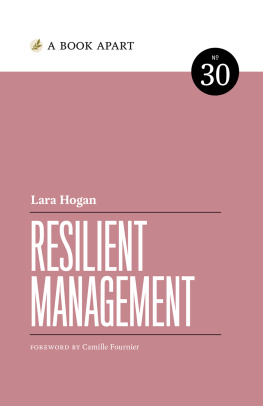Stanford University Press
Stanford, California
2016 by the Board of Trustees of the Leland Stanford Junior University. All rights reserved.
No part of this book may be reproduced or transmitted in any form or by any means, electronic or mechanical, including photocopying and recording, or in any information storage or retrieval system without the prior written permission of Stanford University Press.
Printed in the United States of America on acid-free, archival-quality paper
Library of Congress Cataloging-in-Publication Data
Deeb, Lara, 1974- author.
Anthropologys politics : disciplining the Middle East / Lara Deeb and Jessica Winegar.
pages cm
Includes bibliographical references and index.
ISBN 978-0-8047-8123-7 (cloth : alk. paper) ISBN 978-0-8047-8124-4 (pbk. : alk. paper)
1. AnthropologyPolitical aspectsMiddle East. 2. Universities and collegesPolitical aspectsUnited States. 3. American Anthropological Association. Middle East Section. I. Winegar, Jessica, author. II. Title.
GN17.3.M628D44 2015
301.0956dc23
2015011164
ISBN 978-0-8047-9684-2 (electronic)
Typeset by Bruce Lundquist in 10/14 Minion
Preface
We never could have written this book before tenure. At least a dozen colleaguesacross institutions, disciplines, and regional specialtieswarned us that our project would take us into dangerous territory. One began an interview by first ensuring that we were tenured. Another cautioned, Thank god you have tenure, but you will pay. A third emailed: What sort of trouble do you get in for writing about one of the 9,000 pound elephants in the room?... Basically, Id have to recommend you make sure this doesnt become dynamite in a tenure fight or anything like that. Break the silence, but dont break yourself along the way. We were inspired to break our silence after giving a paper at a conference on the State of the Art of Middle East Anthropology. Our contribution diagnosed the experience of doing anthropology of the region immediately after 9/11, based on ethnography with scholars of our generation. The audience response was astounding. Afterward, senior scholars animatedly recalled similar experiences from earlier decades, and junior scholars encouraged us to further expose for them the minefields that plagued Middle East Studies and anthropology. We came away from the conference with the sense that we needed to explore the history of US empires impact on scholarly practice, using anthropology of the Middle East and North Africa as a lens.
Infuriating experiences we shared nearly a decade earlier had primed us to expand our project in this way. At that time, we wanted anthropology to collectively respond to the horrors of escalating Islamophobia in the United States after the 9/11 attacks and the unleashing of the worlds most powerful military on Afghanistan and Iraq. These wars, along with Israels repeated assaults on Palestine and the US War on Terrors expansion across the globe, would result in colossal death and destruction. We wanted our discipline to speak out so that we could claim it with pride. But it didnt.
This experience marked the beginning of our scholarly and activist collaborations, as well as our ethnographic observations of these phenomena. Writing this book has taught us a great deal: much of what we have experienced during our careers is part of larger historically constituted challenges in academic practice. As anthropologists, we turned to ethnography to understand this terrain. And as with many ethnographies, our experiences as both researchers and subjects permeate the pages of this book.
We could not have written this without the generosity of our colleagues. Our most profound thanks and appreciation, first and foremost, go to everyone who allowed us to turn the ethnographic table on them. As anthropologists, they understand why we cannot thank them by name. This project has driven home how rich life experiences can never be fully captured in textual analysis. We hope that they enjoy reading this ethnographic analysis and that it resonates with their varied perspectives.
Susan Slyomovics and Sherine Hafez organized the original conference at UCLA that kicked off this project; we thank them as well as that conference audience for inspiring us to pursue it. Along the way, we received helpful comments from audiences at George Washington University, the University of Illinois at Urbana-Champaign, and the conferences of the American Studies Association and the American Anthropological Association (AAA). We appreciate the invitations and organizational work of Ilana Feldman, Jessica Greenberg, Nadine Naber, and Lisa Rofel that made those encounters happen.
Our institutions, Northwestern University and Scripps College, funded some of our research. Many undergraduate and graduate students helped us with transcription, data organization, internet research, and bibliographic searches: Lucienne Altman-Newell, Erin Berger, Amy Chang, Shanisha Coram, Sara Dada, Tim Garrett, Danica Harootian, Nedra Lucas, Soad Mana, Emily Matteson, Zaynab Quadri, Katherine Sobolewski, and Najeeba Syed. For their outstanding assistance with interviewing, archival research, and research into funding organizations, we are grateful to Vanessa Agard-Jones, Waqas Butt, Rachel Cantave, Andrea Elganzoury, Rachel George, Christine Sargent, and Claire Wilson.
Many colleagues helped us track down documents, searching old hard drives and file boxes, and sharing reams of virtual and literal paper with us: Lori Allen, Dale Eickelman, Carolyn Fluehr-Lobban, Suad Joseph, Barbara Larsen, Smadar Lavie, Sam Martinez, David Price, Victoria Sanford, Gregory Starrett, Daniel Varisco, and Jenny White. We especially thank Laurence Michalak for going above and beyond, excavating a storage locker to locate and scan Middle East Research in Anthropology (MERA) Forum issues and other materials for us. At the AAA, Kim Baker and Damon Dozier assisted us in locating documents, dates, and bits of information; we are also especially indebted to Executive Director Ed Liebow, for all of that plus his extraordinarily patient replies to seemingly endless email queries.
Our work was made easier by smart comments, useful references, or clarifications from Kamran Ali, Asl Bli, Kristen Brustad, Jessica Cattelino, Piya Chatterjee, Elizabeth Derderian, Micaela di Leonardo, Virginia Dominguez, Gretchen Edwalds-Gilbert, Ilana Feldman, Laura Ann Fernea, Jessica Greenberg, Simon Greenwold, Mark Hauser, Ghenwa Hayek, Katherine Hoffman, Elizabeth Shakman Hurd, J. Khaulani Kauanui, Tobias Kelly, Dima Khalidi, Nikolas Kosmatopoulos, Mark Mahoney, Amy Marcus-Newhall, Joseph Masco, Ellen Moodie, Nadine Naber, Esra zyrek, Seo Young Park, Shira Robinson, Helen Schwartzman, Samuli Schielke, and Shalini Shankar. Chris Toensing generously dug up Middle East Research and Information Project (MERIP) history and helped us navigate a citational minefield.
We count ourselves particularly lucky to have received support and sage advice from Lila Abu-Lughod, Donald Donham, Daniel Segal, Andrew Shryock, Susan Slyomovics, and especially David Price, who has supported our project from its early days, answered numerous historical questions, and inspired us with his work. Donna Murdock, David Price, and Paul Silverstein read the manuscript in its entirety, and Corinne Kratz provided major insights along the way. We deeply appreciate their generosity and incisive interventions. Kate Wahl deserves special thanks for her brave and enthusiastic support. Her careful editorial expertise and intellectual acumen have made this book better, as have the diligent attentions of her team at Stanford University Press.










